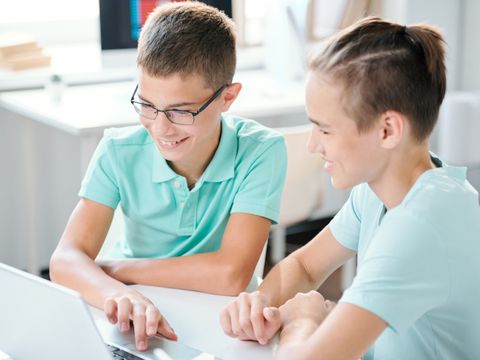
Image: SenBJF
Berlin's school system
The transition to secondary school follows after the one- to three-year initial phase of school education and generally four more years in a primary school. This transition is also possible after four years if that appropriate levels of performance have been achieved. More information











